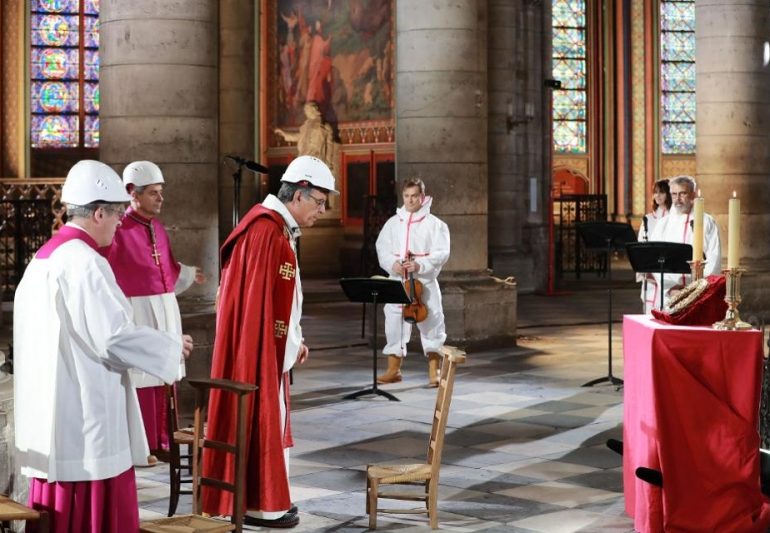France is united in collective mourning. An unthinkable travesty has caused Paris to come to a standstill and an outpouring of grief turns into a flood of public donations.
As fire ripped through Notre Dame cathedral one year ago today, national grieving turned into global goodwill towards its rebuild. First €100 million ($108 million) from François Pinault, founder of Kering, then €200 million ($215 million) from Bernard Arnault, France’s richest person. Other billionaires and companies around the world followed, bringing the total donations to somewhere between $835 million and $1 billion.
One year on, and it is France’s economy that needs rebuilding as the nation comes out of lockdown on 11 May with a far bigger price tag than a Gothic cathedral. Can billionaires and philanthropists again come to the aid of a national and global disaster?
“What we’ve witnessed in the wake of previous disasters like Grenfell, Notre Dame and the refugee crisis is an outpouring of empathy but no obvious direction,” says Dan Corry, CEO of NPC, a U.K. based charity consultancy and think tank.
Speaking to me as France went into lockdown, Mark Greer, head of private clients at Charities Aid Foundations (CAF), saw similar sentiment: “Over the last few days, my team have been having a lot of clients calling up and saying what can I do? What should I be doing?”
It was the same for Withers, the law firm. “People who are in that position of responsibility can feel paralyzed and frozen about how to do it, how to be helpful,” says Alana Petraske, a partner at Withers who advises philanthropists and nonprofits internationally. They were asking questions like, “Which organization can I give to? Which food bank in my local community?”
Philanthropists might not be as forthcoming as they were with Notre Dame. Following the fire last year billionaire donors were quickly rebuked for not spending their huge wealth elsewhere.
The same happened when others, such as Jeff Bezos, donated to the Australian wildfires last year. His $690,000 donation was called “insulting,” as it worked out at just 0.00059% of his total wealth.
Even those with the best intention of donating might suddenly realise that there is less in the pot for charity.
The Forbes billionaire index published last week found that 51% of billionaires have seen their wealth fall in the past 12 months, though most of them lost out in the month of March alone.
New World Wealth, which tracks global high net worth individuals (HNWIs: people with over $1 million), says their collective wealth has fallen by 15%. Using figures compiled by Capgemini last year, that means the world’s HNWIs have lost around $10.2 trillion.
“For wealthy people, making money is often linked to their sense of self-worth and belonging, which also heightens their fear of losing it,” said a report from the Beacon Collaborative and Institute for Fundraising published on Tuesday (14 April).
Or to put it another way, if people are losing money, they are less likely to donate what’s left of it.
That’s not to say that there is not any money left in the pot. The demand from charities and multilateral organisations is trivial compared with total private wealth: $8 billion is required for a vaccine says the Wellcome Trust, just a fraction of total billionaire wealth.
Some are stepping up. To date, 77 billionaires have made major pledges to coronavirus causes, as tracked by Forbes. But there are 2,095 billionaires tallied in this year’s ranking.
Just as France looks back at the Notre Dame fire one year on and asks “what did the wealthy do,” so one year from today the same will be asked again of the world’s richest.














